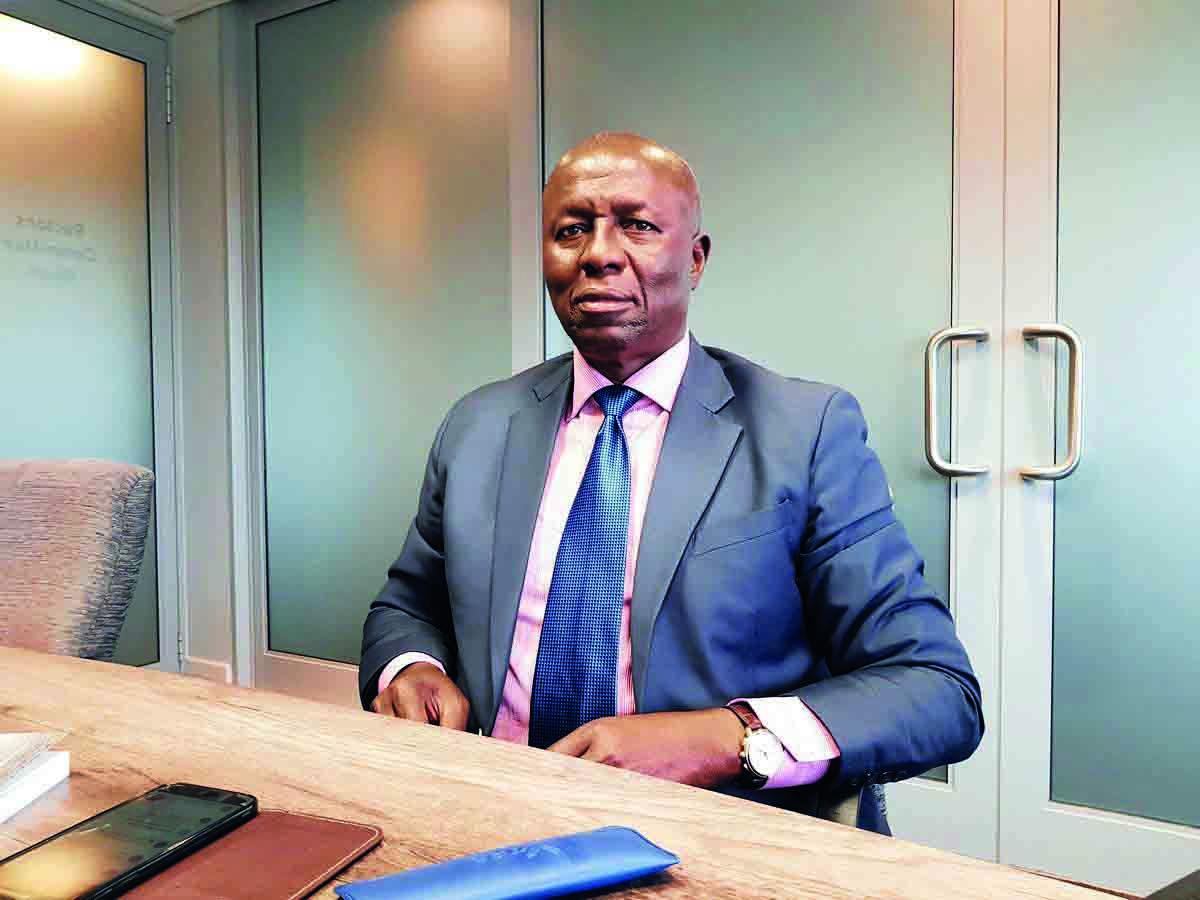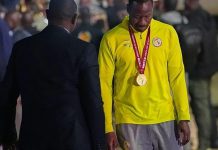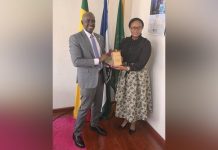Africa-Press – Lesotho. SADC envoy Justice Dikgang Moseneke is hatching a plot to save politicians who were behind the 2014 attempted coup and a spate of murders committed during the period. This is according to a spokesman for the families of those who were killed by soldiers during the turbulent period between 2014 and 2017.
The charge comes after the government agreed to a proposal by Justice Moseneke two weeks ago to set up a Transitional Justice Commission (JTC) to deal with past atrocities.
The families’ spokesman, Lehloenya Mahao, told thepost last night that “the problem with this suggestion is that it does not encompass the opinions or feelings of the victims’ families”.
“You cannot talk to the perpetrators alone and decide on peace and forgiveness without bringing the victims to the table,” Mahao said.
The families include that of late army commander, Lt Gen Maaparankoe Mahao, who was assassinated under controversial circumstances in June 2015 following a power struggle with his rival Lt Gen Tlali Kamoli.
They also include the family of police Sub-Inspector Mokheseng Ramahloko who was gunned down during a raid on police stations in 2014. Mahao said there is a widely held view that political players in Lesotho had a hand in the killing of their relatives.
He said the proposed commission is meant to shield these politicians from prosecution. “This has made us believe, and strongly so, that South Africa is well aware of who are those politicians behind this and like it is always the case it is bullying Lesotho to accept its orders brought as suggestions,” Mahao said.
“This suggestion has many shortcomings and it can have serious repercussions for Lesotho and further destabilise security.
Mahao said he also wondered if Justice Moseneke or the Lesotho government had gone to the United States to speak to the family of an American citizen who was killed in Lesotho.
“If her killers are to be forgiven, it will be by who?” Mahao said they “will appeal to the Americans to join us to oppose this”.
“South Africa and Moseneke are bullying us and we have no option but to appeal to the international community,” he said.
The spokesman for the ruling All Basotho Convention (ABC), Montoeli Masoetsa, said it is up to Basotho to see how best they can approach this issue, confirming that it was agreed on at a dialogue paving way for the national reforms.
Masoetsa however cautioned that it could send a message that we are promoting impunity as a country. He said this was because the killing of Lieutenant General Mahao was a well-planned military operation.
“It was not an accident,” Masoetsa said.
He also said a security guard at the Education Ministry’s headquarters, Mohau Qobete, “was killed by soldiers who were committing a crime, who were intending to murder” two other soldiers.
“This was a clear act of crime and if we say we should not prosecute the perpetrators and go for a commission that will result in amnesty, what are we aiming at?”
The National Reforms Authority (NRA) chairman, Pelele Letsoela, downplayed the criticism saying Basotho had agreed to set up the Commission. Yesterday, Letsoela created a picture of a Transitional Justice Commission (TJC) that is part of their broader peace infrastructure mandate.
Letsoela said the NRA’s mandate on peace and reconciliation is to “recommend mechanisms for peace, national unity and reconciliation”. “The multi-stakeholders plenary II report under constitutional reforms compels us to create a political conflict resolution mechanism by creating a new chapter in the constitution on political conflicts,” Letsoela said.
He added that “the report highlights that we should establish an all-encompassing TJC suitable to Lesotho’s context to address incidents of human rights violations and injustices focusing on reconciliation, peace building, repatriation, compensation without compromising justice and impunity”.
Letsoela indicated that Justice Moseneke in his presentation proposed the TJC as it would bring peace and reconciliation to Basotho and Lesotho. “He reminded us of the need for the healing of the nation.
” He further said he undertook consultations with reforms stakeholders to collect their views on his proposal.
“His proposal entails questions of amnesty and reparations amongst others,” he said. He said Justice Moseneke also called on Basotho to agree on the period and scope of the offences to be covered under the TJC.
“SADC has no position on the issue and it is solely Basotho who must make a decision,” he said.
“We believe there should be full ownership and agreement by all the stakeholders that will best serve the special circumstances in our country.
” He said the TJC will strike a balance between amnesty and prosecution and ensure accountability, serve justice and achieve reconciliation.
For More News And Analysis About Lesotho Follow Africa-Press






